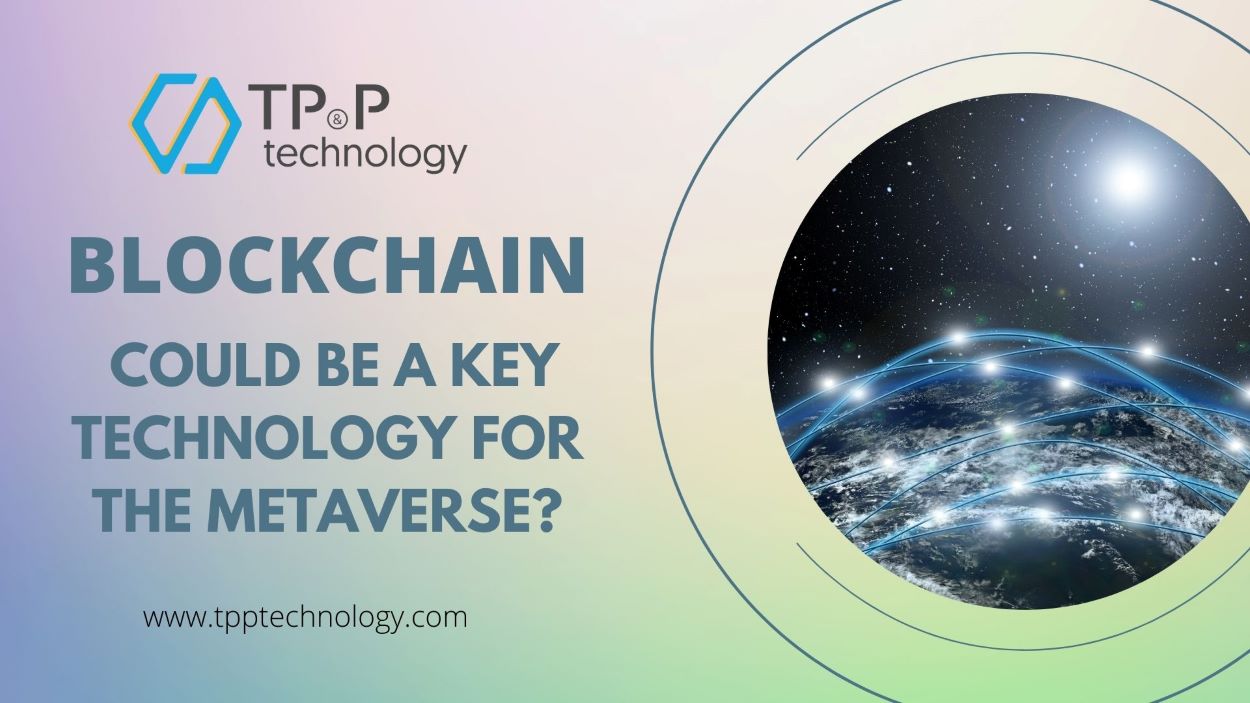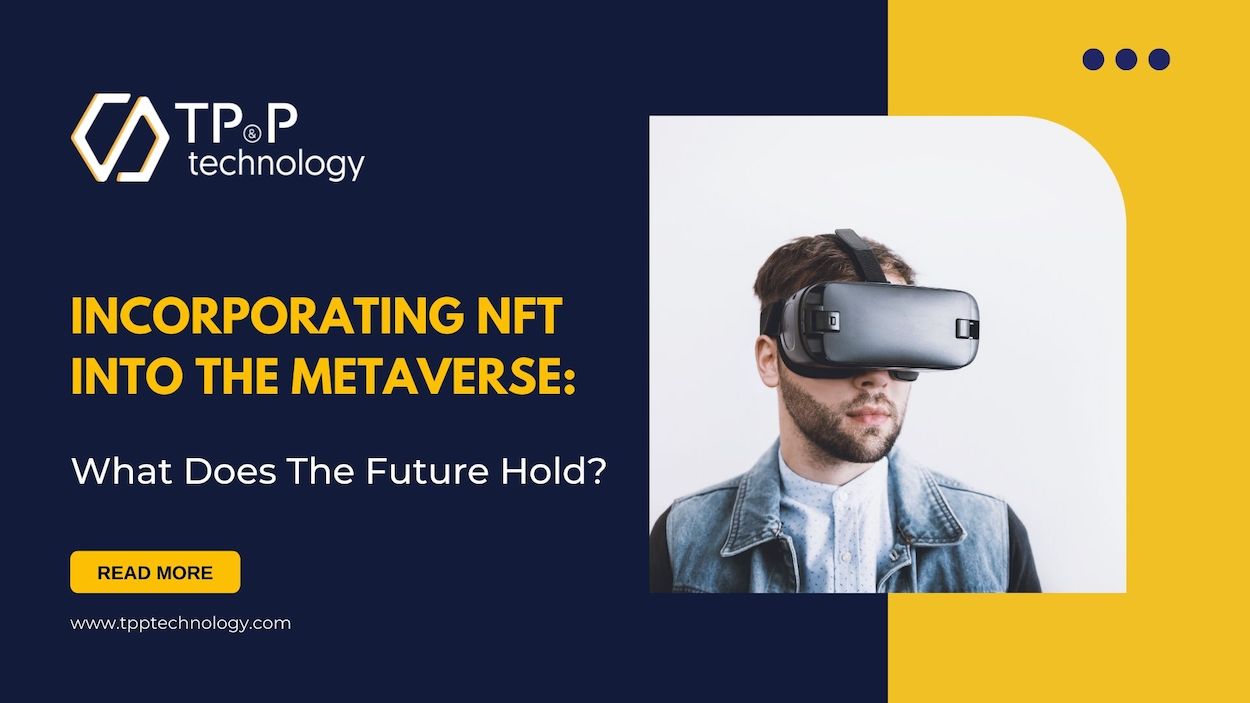
Why Blockchain Is A Key Technology For The Metaverse?
The concept of a Metaverse is increasingly gaining recognition in the past few months, with more people and business organizations paying more attention to its application than ever. However, not many of us would understand the technologies behind the metaverse.
In this article, let’s take a closer look at the core technologies that power the metaverse as well as its future trends.
Notable Trends With The Metaverse
Tech powerhouse like Facebook has changed its name to Meta and has been investing heavily into a variety of Metaverse initiatives. Earlier this year, Microsoft has also announced a plan to introduce its Metaverse in the form of Mesh for Microsoft Team, which enables users to interact in a 3D environment through mixed reality applications.
Specifically, Microsoft introduced their own initiative called Holoportation™ allowing users to project themselves as their most lifelike, photo-realistic self to interact in the Metaverse as if they are there in person.
The Metaverse evolution is expected to continue strong in the coming years.
According to a forecast by Gartner, by 2026, a quarter of people will spend at least an hour a day in the metaverse where people could carry out daily activities like shopping, and studying. Additionally, the metaverse will have a virtual economy where people will use a digital token to purchase and exchange for things like digital collectibles. Together with AR and VR and other technologies, blockchain plays an important role in bringing the Metaverse from concept to reality.
Why understanding Metaverse technologies is essential?
The metaverse's immersive environment isn't just for consumer-facing businesses like E-commerce or Education. Instead, the Metaverse can be beneficial to businesses in various industries with use cases ranging from medical doctors' training to facilitating products and services demos to collaborating with remote co-workers.
Hence, it also provides an advantage for brands to understand the many facets of the Metaverse, particularly the business application it provides in their industry so that they are always in ready mode. Understanding the Metaverse’s technology factor is important in case your organization decides to pursue or enter the Metaverse which requires a business to keep up with the latest development trend in this particular area.
What are the key technologies powering the Metaverse?
As mentioned above, the technologies that power the Metaverse involve virtual reality (VR), augmented reality (AR), and other hardware and technologies like Blockchain. Metaverse project like Axie Infinity provides a good example of leveraging cutting-edge technologies like Blockchain to build a Metaverse.
Recently, Nike and Spotify have collaborated with Roblox to create virtual reality experiences namely “Nikeland”, and “Spotify island”. The Spotify collaboration comes amidst the current hiring of web 3 developers at Spotify.
As said previously, Metaverse can be either centralized (e.g. Facebook’s Metaverse) or decentralized with a virtual economy involving cryptocurrency or other digital forms of payment and NFTs (non-fungible tokens). Here, Blockchain technology provides the capacities for Metaverse to be decentralized and work well with Web 3 (Read / Write / Own), as follows:
Blockchain Technology & the Metaverse
Blockchain further plays a vital role in metaverse development because the future of the web, i.e Web 3.0 is all about decentralization. Thus, to sustain a decentralized web, even metaverse projects need to be built as decentralized platforms. Blockchain technology can impart decentralization into metaverse projects.
The Blockchain is a distributed ledger operated through a network of independently run computers. As the Blockchain operates autonomously, it enables multiple parties to conduct transacting between themselves and record those transactions on the blockchain without a central authority. The Blockchain is transparent and immutable meaning it can not be altered once it is recorded.
One advantage of the blockchain is that it is trustless. With blockchain, there is no need for trust between the parties involved in the exchange as the Blockchain already solves the double-spending issue. Ultimately, the blockchain eliminates the potential issues of fraud or identity theft.
Again, the decentralized character of the Blockchain technology with multi-nodes operates independently for synchronization. Specifically, a blockchain-powered Metaverse would also make it fully independent and decentralized, allowing all users to participate, connect and contribute.
Smart contracts
Many notable Metaverse projects that have been recently introduced are Blockchain-based (e.g. Play to earn game) with NFTs (Non-Fungible Tokens) playing an important role in such projects. NFTs provide the immutable digital proof-of-ownership recorded on the blockchain. Incorporating NFTs into the Metaverse could enable and facilitate various activities related to the trading of digital products, as well as representing users with unique avatars, ultimately creating an economy within the metaverse.
Cryptos Assets
Because the Metaverse is a real-world simulation, it allows users to re-create a variety of actions similar to our real-world activities within that virtual world environment. These activities range from socializing, entertaining, and trading activities.
All of these activities may require the facilitation of a common currency, which can be accomplished through the use of crypto assets. The Metaverse users can use this crypto-currency to pay for digital products and services, both in the real and virtual world.
Conclusion
The Metaverse is still in its development stage but constantly evolving. As anticipated by leading technologists, many new technologies will drive the development of the Metaverse in the future and support the building of a range of use-case portfolios that enhance the Metaverse’s ability to deliver real-world offerings.
Additionally, the advancements in blockchain technologies are making a considerable impact on the world of digital assets as we’re currently witnessing it. The ever-expanding metaverse is expected to affect our everyday lives in dramatic and noticeable ways, with blockchain technology playing an important role to realize it.



